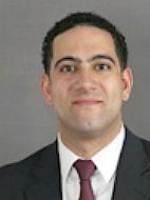As the holiday weekend approaches, many employers in Chicago and Cook County find themselves scrambling to prepare for the Chicago and Cook County Paid Sick Leave Ordinances that will take effect this Saturday, July 1, 2017. The Ordinances, though straightforward in their purpose of providing some limited sick paid time off to employees, raise a number of thorny, confusing questions and various administrative concerns for all employers. To add to this uncertainty, the City of Chicago only yesterday released its extensive final interpretative rules on the City’s Ordinance, which raise a number of interpretative questions and, in places, appear to diverge from the previously-issued final rules of the Cook County Commission on Human Rights on the County’s Ordinance. Not only that, the list of Cook County’s municipalities that are opting out from the County’s Ordinance has been changing, literally, by the hour. To help you get up to speed and make any final necessary changes, in this Alert we will review some key requirements and provide responses to some FAQs employers have been asking related to paid sick leave in Chicago and Cook County.
Paid Sick Leave Requirements
The Ordinances require employers in Chicago and certain municipalities in Cook County to provide all employees, regardless of full-time, part-time, seasonal, or temporary status, with one (1) hour of paid sick leave for every for 40 hours worked, up to a maximum accrual cap of 40 hours in any benefit year. Employees are entitled to begin using accrued paid sick leave following 180 days of employment, provided they have worked at least 80 hours in any 120 day period.
Employees must be allowed to use paid sick leave for any of the following reasons:
-
The employee is ill, injured, or requires medical care (including preventive care);
-
A member of the employee’s family is ill, injured, or requires medical care;
-
The employee or a member of his or her family, is the victim of domestic or sexual violence; or
-
The employee’s place of business, or the childcare facility or school of the employee’s child, has been closed by an order of a public official due to a public health emergency.
In addition to providing employees with paid sick leave, employers are required to inform employees about their rights to paid sick leave by posting the Chicago and Cook County notices in the workplace and distributing these notices to employees with their first paycheck following the Ordinances’ effective date, or with any new employee’s first paycheck.
Frequently Asked Questions
When updating their employment policies and/or practices, employers should be mindful of the following frequently asked questions:
Do the Ordinances apply to all employees working in Chicago and/or Cook County?
The Ordinances are broadly worded such that employers are required to provide paid sick leave to all employees working in the geographic boundaries of the City of Chicago and/or Cook County. However, the Cook County Ordinance permits municipalities in Cook County to opt out of the Ordinance prior to its effective date.
So far, more than half of the municipalities in Cook County have opted out of the Cook County Ordinance, meaning that employers are not required to provide paid sick leave to employees working in these locations. However, if an employee should change work locations, or travel for work, into a municipality that has not opted out of the Cook County Ordinance (such as the City of Chicago), the employee would be entitled to accrue paid sick leave for hours worked in that municipality.
Are employees able to carryover accrued paid sick leave?
The Ordinances permit employees to carryover half of their accrued unused paid sick leave, up to a cap of 20 hours, into the next benefit year. Employees working for employers covered by the Family Medical Leave Act (FMLA) may carryover up to an additional 40 hours of paid sick leave into the next benefit year, to be used exclusively for FMLA-specific purposes.
Nonetheless, in most instances, employers may cap the amount of paid sick leave that an employee can use in a benefit year at 40 hours. The exception to this rule being that employees who carryover and use all 40 hours of FMLA-specific paid sick leave may use an additional 20 hours of regular paid sick leave in any benefit year. Thus, in limited circumstances employees may be able to use as many as 60 hours of paid sick leave in a single benefit year.
Are employers permitted to front-load paid sick leave?
Both Ordinances permit employers to front-load paid sick leave at the start of the benefit year, or at the time of hire. Employers who front-load paid sick leave do not need to track paid sick leave accrual or permit the carryover of paid sick leave into the next benefit year, provided that the requisite amount of paid sick leave has been front-loaded. The precise amount of paid sick leave to be front-loaded may depend on whether the employer is subject to FMLA and/or based in Chicago or Cook County, as their respective rules address front-loading differently. Employers with questions regarding the precise amount of paid sick leave that must be provided to employees should contact counsel.
Are employers able to provide paid time off in lieu of paid sick leave?
Employers may provide employees with paid time off (PTO) instead of paid sick leave, provided that all their employees are provided at least as much PTO as the Ordinances require to be made available for paid sick leave use in a benefit year. Employers should note, however, that accrued unused PTO must be paid out upon termination of employment. There is no such requirement to pay out accrued unused paid sick leave.
Recommendations
In light of the impending effective date for Chicago’s and Cook County’s Paid Sick Leave Ordinances, it is important that employers take any remaining necessary steps to ensure that their paid sick leave policies and practices will comply with the Ordinances. Policies that do not provide the requisite benefits to employees, or those that are silent on key issues such as paid sick leave accrual and/or usage restrictions, will be construed against the employer and could lead to costly violations.






 />i
/>i

